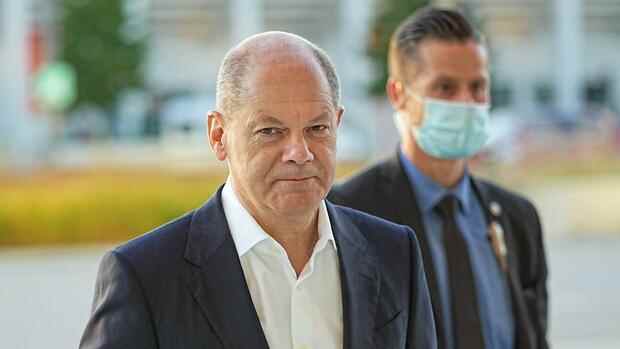There are fears that after two years of traffic lights the centrifugal forces of the SPD will become very strong. Scholz must stop this destructive dynamic.
(Photo: dpa)
Franziska Giffey starts with a defeat on her way to becoming the governing mayor of Berlin. In the election campaign, the top SPD candidate mainly addressed middle-class voters, promising more living space and intensive promotion of the economy.
All of that is now obsolete. Her left regional association forced her to enter into coalition talks with the Left Party. The third partner, the Greens, is delighted. In the capital, the radicals from Kreuzberg dominate the Greens. Squatting, expropriation and anti-car policies are mainstream there.
After just five years of red-red-green, Berlin no longer works. There is chaos at the airport. The provincial politicians only acknowledge this with a shrug. The number of potholes can no longer be counted. The past election chaos is now being dealt with in the courts.
Many residents of the sympathetic city dread the continuation of a left-wing alliance. In the far north too, Manuela Schwesig, another hope for the SPD, has chosen the Left Party as a government partner. An alliance with the FDP would have been possible in both countries, but large sections of the Social Democrats obviously did not want that.
Top jobs of the day
Find the best jobs now and
be notified by email.
These are not good omens for a federal government with traffic lights. Olaf Scholz’s political capital is likely to be greater than that of Franziska Giffey. But there are fears that after two years of traffic lights the centrifugal forces of the SPD will become very strong. Scholz has the difficult task of preventing this destructive dynamic.
Apparently, as part of the grand coalition, the SPD has moved strongly to the left. Party Vice Kevin Kühnert has gathered a strong Juso troop behind him; almost 50 MPs still belong to the traditionally left-wing youth organization. The young politicians are not a homogeneous group, but it made people sit up and take notice that Kühnert signed an appeal that Ms. Giffey should enter into a left-wing alliance in Berlin.
Mecklenburg-Western Pomerania and Berlin are not the only left alliances. A left-wing coalition rules in Bremen, and in Thuringia there is even a Prime Minister from the Left Party. This shift in power will certainly not make things any easier in the Federal Council. The forces in the SPD that want to rule from the center are weakening. None of this makes the coalition negotiations any easier.
More: The traffic light is a great opportunity and a great risk for the FDP
